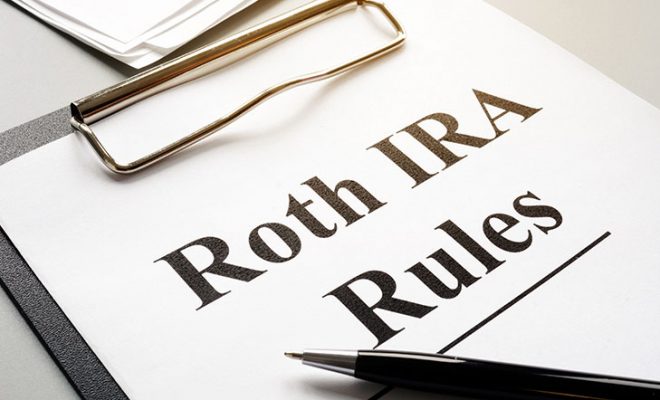7 Key Steps to Prepare Your Finances for Retirement

When it comes to retirement planning, one of the golden rules to follow is to begin saving early. That said, it is never too late to start saving for retirement. However, you would have to make up for the lost time in order to save a sizable retirement corpus for your golden years. An organized approach to retirement planning can help make retirement the most fulfilling phase of your life. Consider consulting a professional financial advisor who can help build a substantial retirement nest egg to allow you to live your retirement years comfortably.
In this article, we will discuss key steps you need to take to prepare your finances for a stress-free retired life.
How to prepare your finances for retirement
1. Maximize your sources of retirement income
The most common retirement income sources include pension plans, 401(k)s, individual retirement accounts (IRA), and Social Security benefits. Financial experts advise maxing out contributions to retirement accounts and employer’s savings plans. This can help you accumulate a higher corpus and also save on taxes due to the tax-deferred nature of these accounts. It is also important to enquire about pension plans, how they work, their benefits, and more at your workplace, and what happens to your pension benefits in case you switch your job. According to a study, on average, Social Security benefits can replace up to 40% of your pre-retirement income. So, determining these benefits beforehand can help you better plan for retirement.
2. Compute your monthly expenses after calculating how much you need to save for retirement
Making a list of all significant expenses that you may incur in retirement can help in understanding how much you need to save for a comfortable retirement. Come up with a budget and track your expenses. Identify where you can trim your costs (eating out, online subscriptions, traveling, etc.) while taking account of non-discretionary expenses such as rent, utilities, groceries, etc. While there isn’t a regular paycheck after retirement, Social Security and pension (if included in retirement benefits) can help provide a steady income post-retirement. A commonly-used benchmark is the 4% rule devised by financial planner Bill Bengen in the 1990s. According to the rule, a diversified investment portfolio in the retirement account will last the entire retirement life if withdrawal amounts do not exceed 4%. For instance, if a person needs $30,000 per annum from their retirement account, they must have at least $750,000 in the account when they retire. You may also consider working part-time to help cover your expenses till the time you can start withdrawing your Social Security benefits. This will help avoid financial troubles after retirement.
3. Assess whether the risk associated with the portfolio should be reduced
Financial experts often advise their clients to reduce their risk exposure as they approach retirement. This is because at a younger age you have typically more time to recover from losses caused by market fluctuations. However, older people may neither have enough time nor the risk appetite to do so.
While the stock market swings and the world economy is beyond human control, individuals can create a hedge against turbulence and crashes. Portfolio diversification is a time-tested way to protect investment income. If your retirement account is already diversified, you can consider investing in other investment instruments such as real estate, or even cryptocurrency to boost your returns. For instance, a traditional but effective hedge against inflation, political disturbances, and currency devaluation is gold. However, one must be careful while investing in precious metals; according to financial experts, gold investments should not exceed 5-10% of the portfolio.
A financial advisor can help dial down risks as you age and ensure that your savings remain safe. They can also advise on the best instruments to diversify the portfolio and suggest what percentage each instrument should be in your portfolio.
SPONSORED WISERADVISOR
4. Estimate your healthcare expenses
With advancing age, it is more likely that you may develop health issues and may need to spend considerably more taking care of your health. You can invest in an Health Savings Account (HSA), a tax-advantaged account wherein you benefit from tax-deductible contributions and tax-free earnings. You can also make tax-free distributions from your HSA provided the funds are used for qualified medical expenses. For 2023, you can contribute a total of $7,500. HSAs can help cover your healthcare expenses in retirement allowing you to not dip into your retirement savings.
5. Ensure you have adequate insurance
It is necessary to have the right insurance policy to ensure secured retirement. Insurance can help avoid unexpected expenses in case of a mishap or illness. That said, being under or over-insured can be detrimental to your financial health. Hence, carefully analyze your insurance plan, insured sum, and premiums payments to avoid any unpleasant surprises in the future. You must carefully compare different policies from different providers and ensure that it adequately covers your needs.
6. Pay off existing debts
While debts might be suitable to finance necessary expenses, they can be disastrous during retirement. Liabilities like mortgages can hurt your financial well-being especially if you are still paying off your debt after retirement. Thus, it is advised you clear any form of debt before entering retirement. You can consult with a financial advisor who may help come up with a strategy to reduce or restructure your debt.
7. Consult a financial advisor
Retirement planning involves identifying retirement income goals and coming up with a plan on how you are going to achieve those goals. To do so, you must identify different income sources, size up expenses, enforce a savings program, and manage assets and risk effectively. Ideally, an investment strategy should focus on maximizing returns while balancing the risk. One must also be aware of the tax implications to avoid making expensive mistakes. With so much to consider, seeking guidance from a professional financial advisor or retirement planner is advised to help ensure your money is handled effectively.
Bonus tips
1. Be frugal
Being frugal helps keep your expenses in check, allowing you to save more. Additionally, you can make use of online retirement calculators to find out your post-retirement expenses and figure out if you have enough saved for your golden years. If not, it may be advised that you cut your expenses and avoid taking on debt.
2. Have an estate plan in place
No matter if you are financially well off or not, you must have an estate plan to ensure your wishes are carried out after your demise. An estate plan also helps ensure how your properties and financial obligations are managed in the event you become incapacitated. Estate planning is an integral part of planning for retirement as it includes writing a will, setting up a power of attorney, limiting estate taxes, naming an executor of the estate, and more.
To conclude
Planning for retirement may feel overwhelming at times but having a well-thought-out plan in place can help make the process relatively smooth and painless. Start early, make a budget and stick to it, keep your expenses in check, invest in the right instruments, and try to eliminate your debt before you enter your golden years. You can also reach out to a professional who can help you manage your financial needs. Use the free advisor match service to match with vetted financial advisors that can guide you effectively on how to prepare your finances for retirement. Answer a few questions about yourself and get matched with 1-3 financial advisors that can help you with your unique financial needs and goals.











